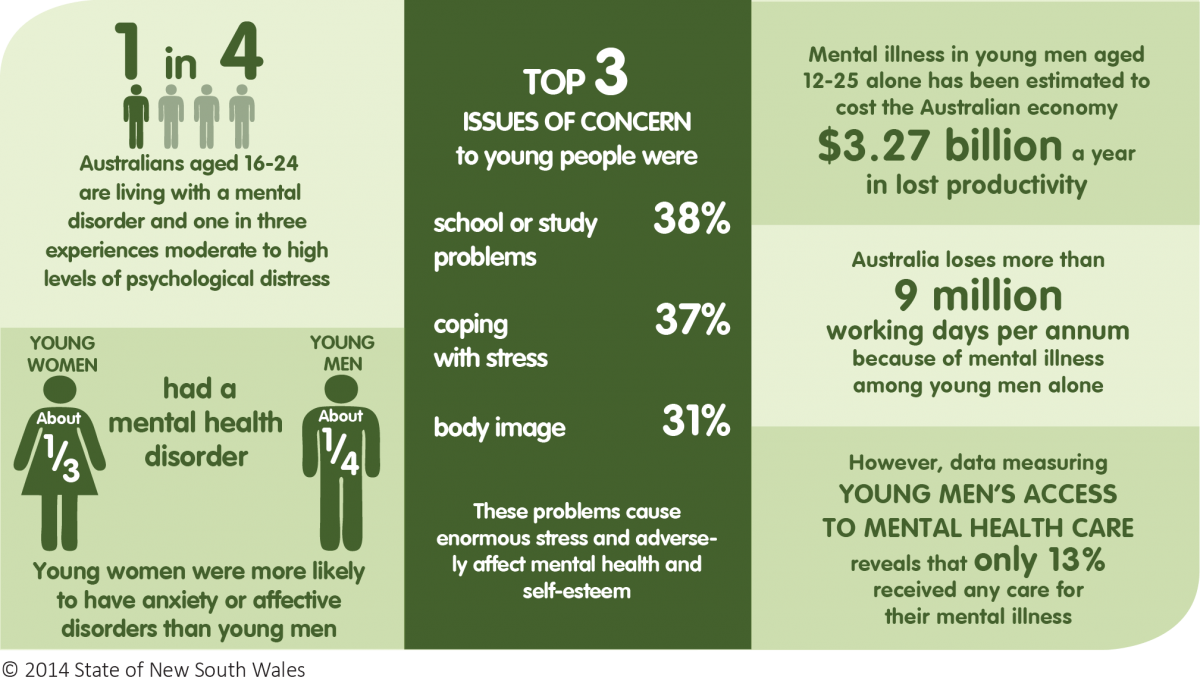
How To Help Someone Dealing With Anxiety
There’s nothing new about anxiety.
Yet despite its relative commonality in the Australian population there’s still so much we don’t know about how to really help someone dealing with the condition.
You probably know someone who suffers with anxiety, and if you don’t it’s likely that you will at some point in your life. Current statistics suggest that one in four Australians will suffer with anxiety within a 12 month period.
That’s a lot of people, and despite what you might think anxiety is, actually more common in people over 25 than it is in people under 25.
So what can you do when you’re confronted with a family member or friend suffering with anxiety in order to get them some kind of relief? We have a few tips.
1. Forget What You Think You Know
An anxiety disorder is not the same as day-to-day anxiety. Pretty much everyone feels anxious every now and again, about a meeting with your boss or getting results back from a test. An anxiety disorder is totally different, and to really help someone you have to forget all the preconceptions you have about anxiety. This is not a made up condition, it’s real and it’s a daily challenge.
You might not know, for example, that anxiety changes the brain chemistry in a way that actually creates negative thinking. This in turn makes it more difficult to think positively, and control anxiety. Along with this, anxiety can produce a whole bucketful of physical symptoms, which in turn cause more anxiety.
2. Don’t Talk About A Cure
There’s nothing about having an anxiety disorder that involves a sudden change in behaviour or a cure. Anxiety is treatable, but it’s a long-term condition and it’s often very difficult to find a treatment plan that works. So it helps the person suffering with the anxiety if you don’t bring up a ‘cure’ that you might have heard about, and you don’t simplify the process of moving through and managing anxiety.
For example, just going on medication doesn’t ‘solve’ anxiety, neither does just going to counselling or just making a single breakthrough. It takes time, and there’s nothing you can do about it.
3. Encourage Them To Talk Openly
You want the person in your life to know that you’re there for them, so make it clear. Anxiety can mess with logic and the emotional thought process, so it might not always be clear to the anxiety sufferer that you’re here to help. At every moment, but without being too pushy, let them know that you’re happy to catch up when they’re available and willing, in person or even over the phone. They should know that you’re there to listen when they need you, about anxiety and other issues.
4. Be Careful In Bringing It Up
When you’re with someone who suffers from anxiety, it’s not always a good idea to bring it into the conversation. For some anxiety conditions, like panic attacks, having someone carelessly bring it up can stress the person enough to start one. Plus, this is a serious condition so it shouldn’t be discussed in an offhand way. If someone with anxiety wants to talk to you about their condition, they’ll bring it up. If they don’t, maybe they just want to talk about other things.
via mosaicweightedblankets.com
5. Stay Away From Frustration and Anger
During the process of dealing with someone as they work through their anxiety, it’s easy to feel angry and frustrated. Anxiety can be a disorder that keeps people in their heads, focused on themselves and their own recovery. So you may feel like, despite all your efforts, you’re not being recognised or even reciprocated. It’s important to practice forgiveness in these instances, and understand that the challenges of anxiety can permeate through your entire life. You do matter to that person, but maybe they don’t know how to show you.
6. Try And Get Them Out Of Their Heads
While it’s all well and good to talk about anxiety with an anxiety sufferer you are no expert. So one of the most valuable things you can do to assist an anxiety sufferer is to get them out of their heads a little and back into the world. Think about a safe, enjoyable activity you can do with them to create a positive mood. This might be a picnic at the park, a trip to the mall or a dinner date. The outdoors is a particularly good option, as some studies suggest that being in a natural setting can improve the mood markedly.
7. Celebrate Their Improvements
As the person in your life suffering with anxiety moves forward and improves, it’s so important for those around them to celebrate their wins. Sometimes these will be small things, and sometimes they’ll be really big steps in a positive way, but in either case it’s great if you can congratulate that person, let them know how proud you are and make them feel really good. Anxiety can make you reduce your own worth, so sometimes having others to help prop you up is a lifesaver.
via asirememberitpersonalhistories.com
These are just a few tips that you can do to help someone dealing with anxiety. It’s not an exhaustive list by any means, and we love to hear about the nice things that people have done for the loved ones in their lives dealing with the condition.
How do you help someone deal with anxiety?
Read more about this at: stayathomemum.com.au












